
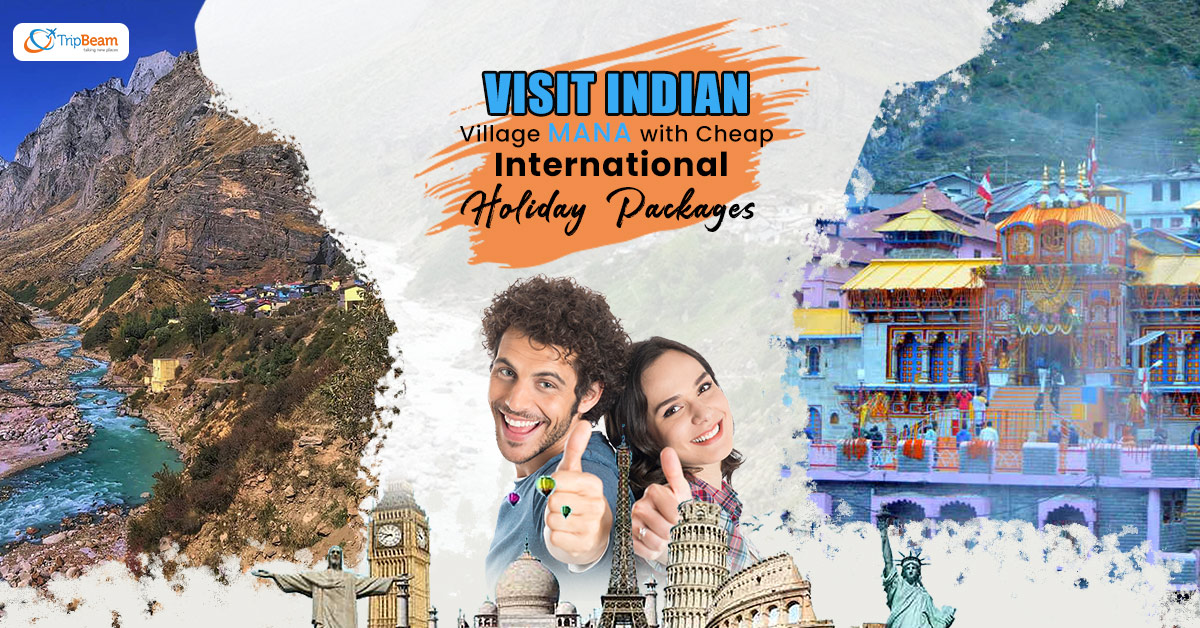
Snuggled in the Himalayas, situated in the region of Chamoli in Uttarakhand, Mana is the last Indian village from the India and Tibet/China border. Situated close to the pious site of Badrinath, on the banks of River Saraswati, village Mana is located at a level of around 3219 meters. This village is approximately 24km from the Indo-Tibet/China border and has around 70 wooden houses with a meager population. Overseas travelers can get avail of the cheap international holiday packages available to plan their travel to the state of Uttarakhand and make a visit to this village. People often get befuddled between Mana in Uttarakhand and Chitkul in Himachal Pradesh, in regards to which one of these holds the title of being ‘the last Indian village’? Tripbeam Canada answers this to make it clear for the overseas travelers as Chitkul is essentially the last occupied village situated on the Indo-Tibet/China border, yet Mana in Uttarakhand is formally acknowledged as the ‘last village of India’.
Mana is globally renowned for its woolen pieces of clothing and materials comprised of sheep fleece, such as caps, shawls, mufflers, ashan, a thin blanket known as the pankhi, carpets, and many more. Besides these businessmen sell their items, by using the tag ‘Last Village.’ For instance, if you are a Canadian traveler traveling on direct flight tickets from Canada to India, and you visit Mana, you are likely to come across counters like ‘India’s Last Tea and Coffee Corner’, which is very fascinating and entertaining as an overseas traveler.
Mana village is designated as the ‘Tourism Village’ by the state government as it offers activities like trekking and hiking, prehistoric temples, beautiful waterfalls, and cottages that are elegantly carved adding to the reasons to visit the village. Overseas travelers must know places that they should visit while traveling to Mana to make their trip worth remembering.
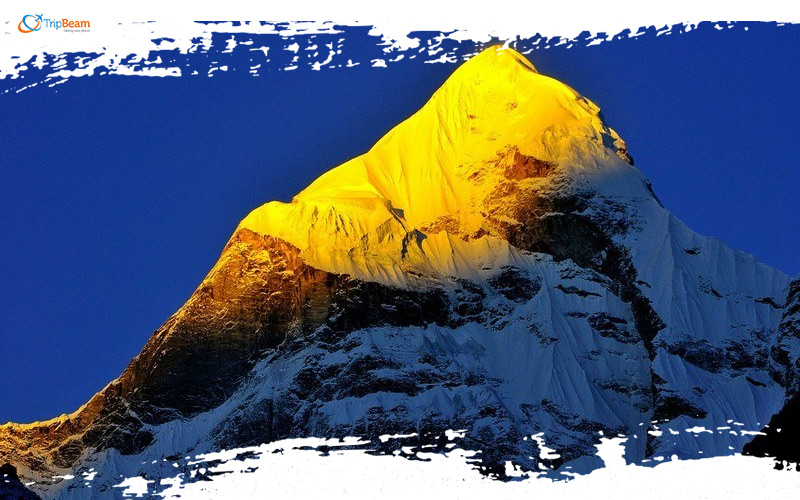
A major attraction in the Mana Gaon is the Neelkanth Peak which is a notable Himalayan peak situated at an altitude of 6597 ft above sea level. Exotic blossoms of Brahamakamal are often found here, while the snow-covered peak gives a scenic view of the Badrinath Dham.
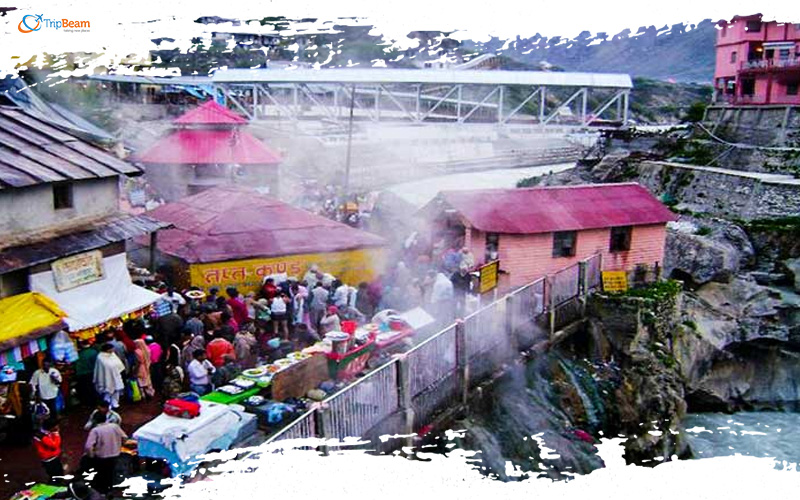
The Tapt Kund in Mana village has restorative qualities and a natural spring besides being the abode for the Fire Lord, Agni Dev. As per folklore, the presence of specific minerals in the water assists in restoring cleaning sicknesses as it is believed to have medicinal values. The site is normal among travelers and others trying to cure their skin issues.
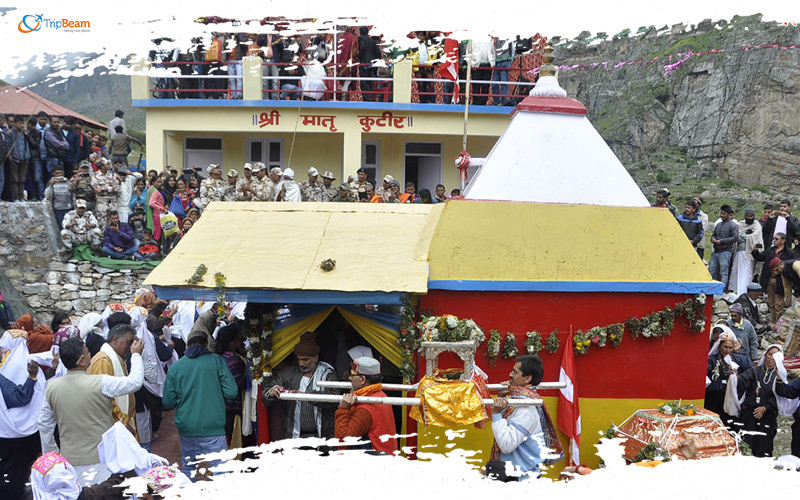
The Mata Murti Temple is a reverent site in the town that is devoted to the mother of Lord Narayana who embodied as twins, Nar and Narayana. The sanctuary is visited by overseas tourists exploring the area after traveling on the best deals on flight tickets. A yearly celebration is led during August and devotees from all over plan an end to the sanctuary here.
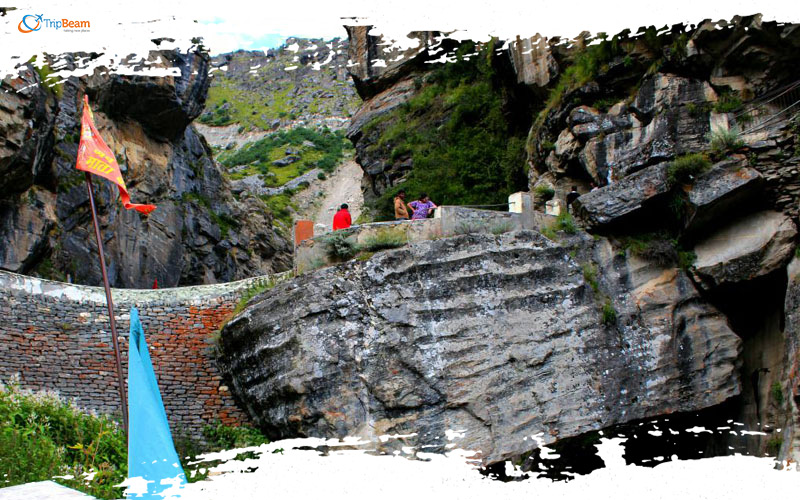
Bheem Pul or bridge is a prime attraction and seems to be straight out of a fairy tale. River Saraswati begins out of rock close to Bheem Pul and despite being a narrow stream, the pandemonium of the water is stunning. There’s a natural rock bridge over the gushing river and as believed in the folklores, when the Pandavas were crossing this river while heading to paradise, Bheema lifted an enormous stone and set it here. It was done to help Draupadi, his wife, and others while crossing the stream. Bheema’s impression is likewise apparent on the stone right next to Bheem Pul, a 20 ft. tall foot-shaped mark.
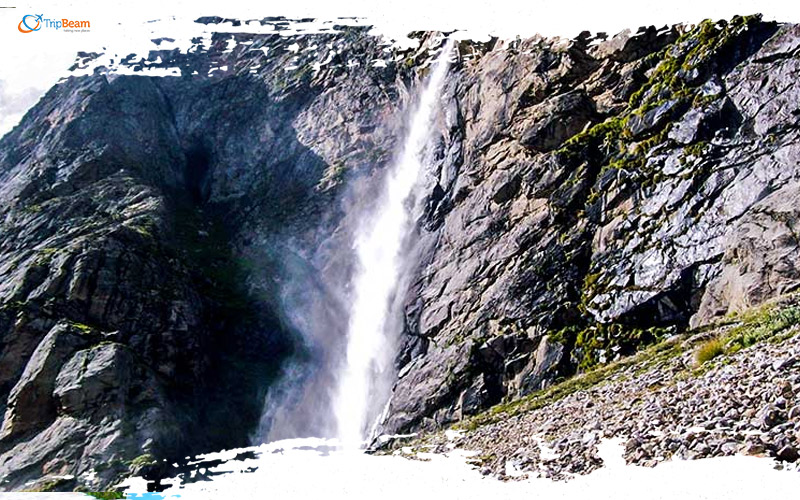
The picture-perfect Vasudhara Falls is located at a distance of 9 km from the Badrinath Temple. It is said to have served as the home for the Pandavas while they were in exile. As overseas travelers avail of cheap international holiday packages, they will have to take a rough trek to witness the mesmerizing natural beauty.
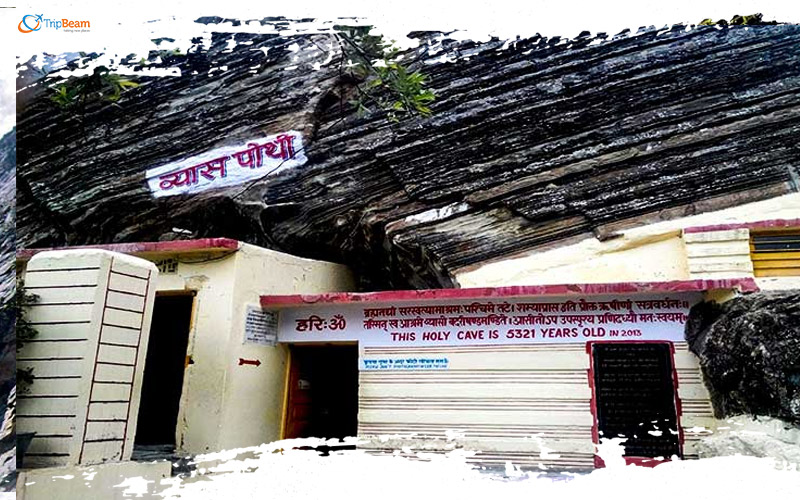
There is a religious site known as Vyas Gufa, where it is believed the Maharishi Ved Vyas composed his epic literature masterpieces including the narration of the epic Mahabharatha. An almost 5,000-year-old shrine dedicated to Maharishi Vyas is also located on the site.
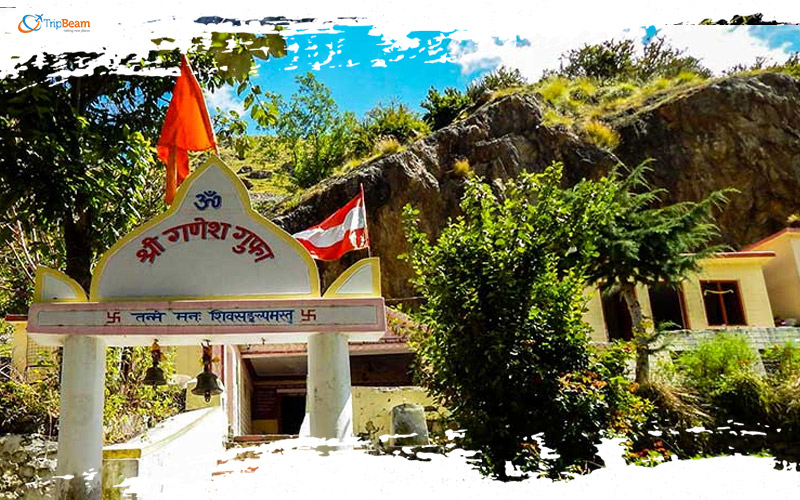
It is believed that Ganesha wrote the epic Mahabharata and compiled the entire literary work when Ved Vyasa narrated it. The entire literary work was written by Ganesha in the Ganesh Gufa in the Mana village.
The recommended time to visit Mana village is from June to September. After the overseas travelers have flown to India and have availed the cheap international holiday packages, and come to the state of Uttrakhand, the only way to reach the Mana village is by road trip on NH-58.
Visiting Mana is not only a spiritual experience but an experience that brings people closer to nature. The place is a must on your itinerary when visiting the state of Uttrakhand. The unexpected is always a blessing in disguise; however, when serendipity is as serene and special as Mana, it must be planned instead of just happening by chance. At India’s last village, you’ll make lasting memories that will last a lifetime.
Tell us more details to help better






| Sun | Mon | Tue | Wed | Thu | Fri | Sat |
|---|---|---|---|---|---|---|
30 | 31 | 1 | 2 | 3 | 4 | 5 |
6 | 7 | 8 | 9 | 10 | 11 | 12 |
13 | 14 | 15 | 16 | 17 | 18 | 19 |
20 | 21 | 22 | 23 | 24 | 25 | 26 |
27 | 28 | 29 | 30 | 1 | 2 | 3 |
| Sun | Mon | Tue | Wed | Thu | Fri | Sat |
|---|---|---|---|---|---|---|
30 | 31 | 1 | 2 | 3 | 4 | 5 |
6 | 7 | 8 | 9 | 10 | 11 | 12 |
13 | 14 | 15 | 16 | 17 | 18 | 19 |
20 | 21 | 22 | 23 | 24 | 25 | 26 |
27 | 28 | 29 | 30 | 1 | 2 | 3 |